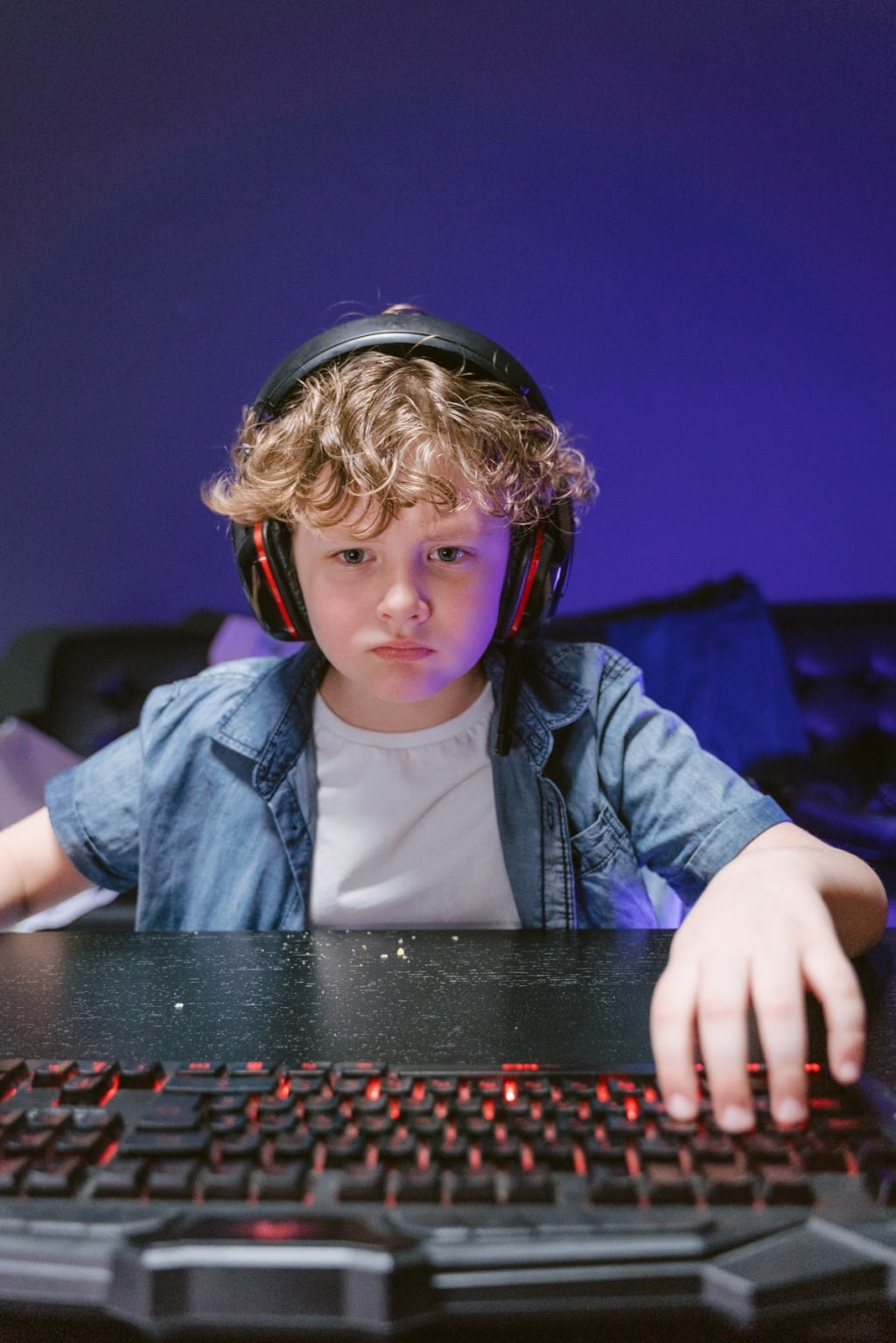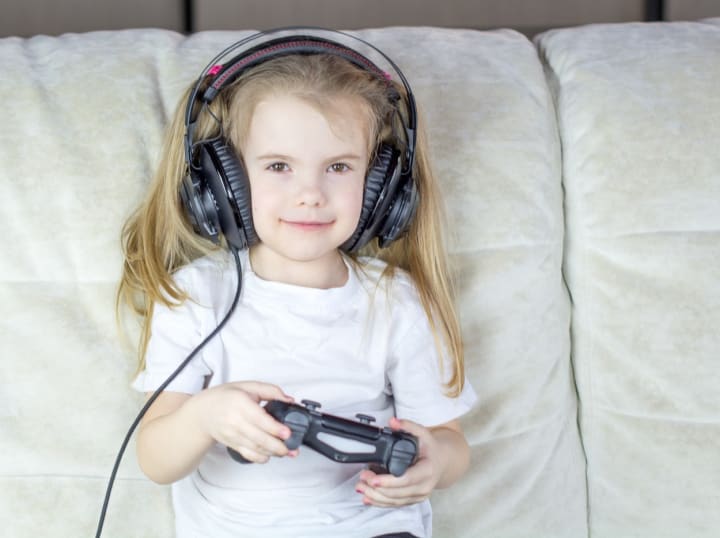Stop Children’s Adultification on Social Media and Start Normal Play Development
“Adultification is the failure to see the world from a child’s perspective.” Erika Christakis

Erika Christakis is an American educator who specializes in early childhood education and wrote The Importance of Being Little: What Young Children Really Need From Grownups.
She writes: Increasingly we treat them as commodities and find ourselves “in danger of losing the child in childhood.” Instead of imposing adult expectations…parents and teachers should try to “take their blinders off” and see the world through the eyes of young children — a change in perspective that might allow us to better understand and cultivate their unique abilities.
This is a call to return to the impulse of freedom of play as a natural development and discovery of our real environment. Let’s put the screens down and cultivate hands-on three-dimensional learning in small groups and independent discovery of communication and consequences.
My goodness, I still remember at the age of 5 or 6, the big flat rock in our front yard where I designed a whole mystery skit between rocks, leaves and branches where the stick detective found the missing rocks under the leaves with mud pies as a special effect!
Look around our homes at all the internet-connected devices everywhere … laptops, smartphones, tablets, all presenting new challenges and opportunities for parents and their kids. See Jane play house on a screen. See Dick chase a robot around a maze. See Mom and Dad busy doing something else.
Do a simple exercise. Enter these words into Google search: how social media affects children. A whole crop of topics will come up about children: mental health, behavior, self-esteem, child development, children's behavior, education and parent-child attachment.
Who worries about exposure to technology and what social media can do to our young children’s education and socialization process? At what stage is there a fusion between preteens and teens whose many research studies have shown they are growing up with more anxiety, less self-esteem, poor body image and depression?
The role of the parent is crucial
Parents are the best navigators and monitors of this media environment to ensure maximum benefits to their children, not excluding television. The good news, more or less, is that Pew research indicates that many take their roles seriously about children and smartphones:
65% … think it’s acceptable for child to have their own tablet computer before the age of 12
71% … say the use of smartphones by children age 11 or younger will hurt their ability to learn effective interpersonal skills and friendships
86% … limit time onscreen for children 5 to 11.
80% … take away their child’s smartphone or internet privileges as punishment.
75% … check the websites this child visits or the mobile apps they use (75%) and use parental controls to restrict how much this child uses screens (ages 5 to 11.)
Interestingly, nearly 70% say they are at least sometimes distracted by their smartphone, with 17% saying this happens often.
This seems to confirm that “Internet addiction disorder is a known problem among adults and is no less a problem with children whose usage may be unlimited (30,49,50).”
The research examining children (those aged under thirteen) and social media is still relatively under-researched as researchers have focused their attentions primarily on adolescents and social media. However, current research notes that preteens or children may be using various types of social media without a full understanding of the consequences that this activity may entail.
There is little work on the impact of social media on younger children. More research is needed to identify those most at risk of harm from social media and offer some mitigation strategies to assist health-care professionals to provide essential education for parents and young people.
But do we need science to confirm our own observations of children even if we can’t see what is going on in their brains longitudinally?
Social media platforms have bright colors and buzzing noises that require little concentration. Perhaps growing up on superficial stimuli may detract from ability to engage with others or process language more deeply. An Instagram photo should not replace an actual experience of a family event.
Too much screen time can cause or affect physical or mental health:
… postural development
… obesity due to lack of activity
… eating or snacking may increase or decrease with a possible loss of appetite
… possible short sightedness or dry eyes leading to irritation and fatigue
… sleeplessness from blue lights from mobile screens
… signs of addictive behavior via tantrums
… less time with families or compare their lives with others
… lack of separation from advertisements and real life
… generate a sense of need for material goods
Another serious “wired” danger can be found in chat rooms where pedophiles lurk to lure young people into relationships. Pornographic pop-ups can frighten with confusing sex talk that impacts the mind’s eye. Parents can use technology that blocks access to such sites on the Internet, but must be aware that this technology does not replace their supervision or guidance.
Who can deny the value of free play?
Let’s return to play to help improve children’s physical, mental and social health and behavior.
Let’s not forget that learning is active that builds on prior knowledge in a social environment that requires motivation and cognitive interaction with observations, new connections and ideas.
So, today, parents as guardians of their children have a choice:
ONE: Keep plugging into dramatic shifts in online video viewing or smartphone ownership…where digital messages play an even bigger role in their sense of self, social awareness, well-being, and their access to information on everything from news to the latest viral meme.
TWO: Rediscover the fun, spontaneity and sensory excitement of learning from real world experiences, experimentation and imitation of their real surroundings.
“Play is the universal language of childhood. It is through play that children understand each other and make sense of the world around them.” Erika Christakis
Some ideas for active play minus screens:
Read and tell stories out loud...
Use a doodle slate to create images or patterns...
Play board games or make a puzzle with family...
Walk or play outdoors or ride a bike...
Create a miniature terrarium with found objects...
Take a music class or do crafts, drawings or paintings...
Don’t you think it might be time to do a screen de-addiction campaign?
What are some of the ways you engage to help your children participate in benefits of natural childhood play?
Annemarie Berukoff
What’s Lost When We Rush Kids Through Childhood
https://www.edutopia.org/article/whats-lost-when-we-rush-kids-through-childhood

About the Creator
Annemarie Berukoff
Experience begets Wisdom: teacher / author 4 e-books / activist re education, family, social media, ecology re eco-fiction, cultural values. Big Picture Lessons are best ways to learn re no missing details. HelpfulMindstreamforChanges.com






Comments
There are no comments for this story
Be the first to respond and start the conversation.